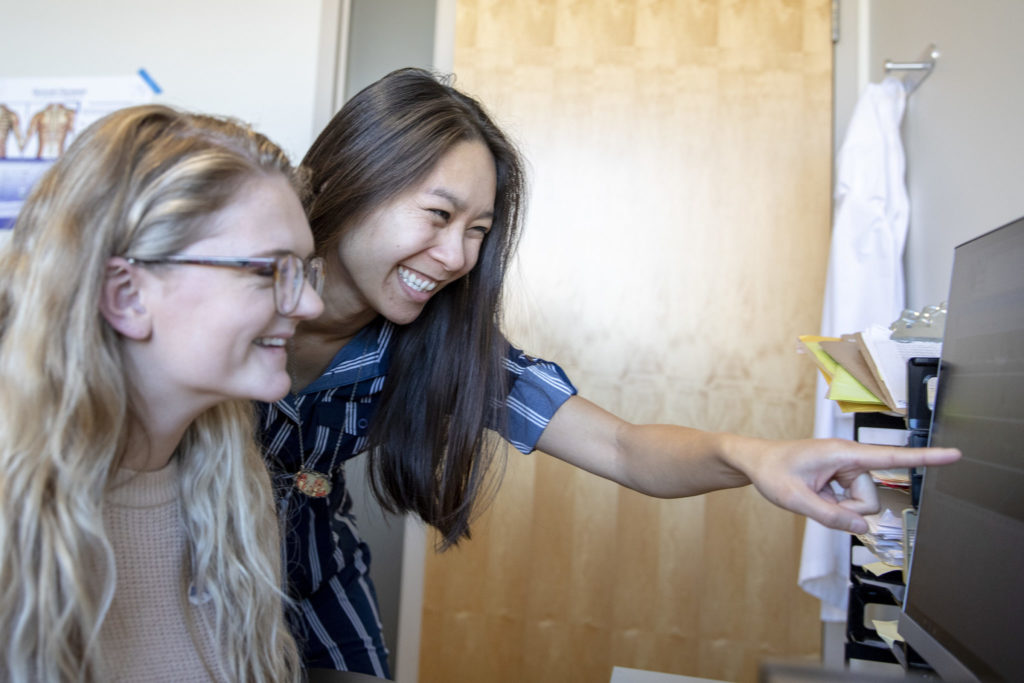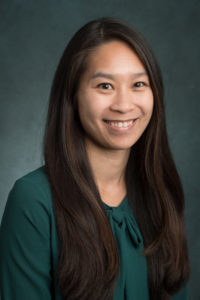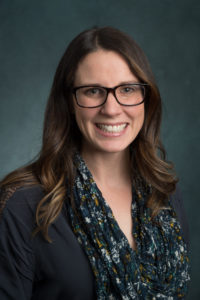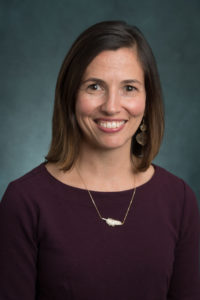
Due to public health safety concerns over the spread of COVID-19, we have had to make the difficult decision not to offer the DREAM program this year. We are truly disappointed with this outcome but believe that it is important that we all work together to minimize health risks to our program participants and to reduce the spread of the novel coronavirus. We hope to be able to offer the DREAM program next summer, so stay tuned for more information.
The Department of Human Development and Family Studies is accepting applications for the Developmental Research Experiences and Mentorship (DREAM) summer program.
The American Psychological Association has awarded a grant to the department to support research assistantships in its labs during the summer of 2020. The purpose of the APA Summer Undergraduate Psychology Research Experience (SUPRE) Grants is to provide talented undergraduates who have little or no prior laboratory experience with the opportunity to gain first-hand knowledge of how scientific research is conducted.
Gloria Luong, assistant professor, applied for the American Psychological Association grant to help spark passion and joy in students who are exploring research as a career option, similar to what she was doing 15 years ago as an undergrad at a 10-week research program designed to help students gain hands-on experiences.
“To this day, I would say it was one of the most life-changing experiences that shaped my career trajectory,” said Luong who views the DREAM program as a chance to pay it forward. “I think our DREAM program is so important for so many reasons.”
The program will provide meaningful opportunities to work closely with faculty who are invested in training students and helping them get a jump start in gaining research experiences and learning the latest, most innovative techniques in the fields.
The 8-week research immersion program in human development and psychology research is for undergraduates at accredited institutions who are interested in working closely with CSU faculty mentors to gain experiences and preparation for graduate studies.
“Students will also have access to faculty mentors in ways that they would never get in the classroom,” said Luong.
Participants of the DREAM program will work 40 hours per week in labs where they will learn to test research questions in human development and lifespan developmental psychology. Students will participate as members of a research team, attend research presentations, participate in journal clubs, and participate in other professional development activities.
Faculty mentors
The faculty in the department are involved in a wide array of cutting edge and innovative cross-disciplinary research that integrates cultural, contextual, and biological approaches with psychological methodologies, including those from lifespan developmental psychology, cognitive psychology, social/personality psychology, clinical/health psychology, and behavioral medicine.
Undergraduates will work closely with faculty mentors on research activities. Students will attend lab meetings with their faculty mentors to learn more about procedural aspects of conducting research and to get more integrated into their labs.

Gloria Luong – Health, Emotion, and Aging Research Team (HEART)
The Health, Emotion, and Aging Research Team (HEART) investigates how stress may influence health and well-being, and how we can use effective emotion regulation and coping strategies to protect against the negative effects of stress. We also examine how these processes may change across adulthood, such as whether we may get better or worse at regulating our emotions and coping with stress, and how we can help people learn to better manage their stressful experiences. Our studies use multiple innovative methods to understand stress responses, such as by observing stress reactivity in the laboratory (via changes in physiological and subjective stress experiences) as well as in daily life using physical activity trackers and surveys administered via mobile smart phones so participants can tell us about stressful experiences in their everyday lives. Research assistants will be involved in recruitment of study participants, collecting data from participants in the laboratory and in daily life, managing our physiological and psychological data, and analzying data to answer their own research questions.
Allyson Brothers – Senior Access Points of Larimer County
– Senior Access Points of Larimer County
Undergraduate trainees will work on a research project focusing on aging in rural areas. Subtopics include social isolation and loneliness, access to aging-related resources, and attitudes toward aging. Students will learn skills related to survey design and development in an online survey platform; participant recruitment strategies; structured interviews with older adults and their caregivers; conducting preliminary analyses (both quantitative and qualitative); and community engagement/participatory research. Students will receive training in technologies such as Qualtrics and SPSS.
Lauren Shomaker – Adolescent Wellness Lab
– Adolescent Wellness Lab
The research program of the Adolescent Wellness Lab focuses on the health of teenagers. We are particularly interested in how mental health concerns – such as depression – affect physical health problems – like obesity and diabetes. We carry out intervention studies at the university, as well as in hospitals, after-school mentoring programs, and other community settings, to provide evidence-based interventions for stress and depression, and test their effects on health behaviors and health outcomes. We are studying various intervention approaches, including interpersonal psychotherapy, cognitive-behavioral therapy, and mindfulness-based programs. Research assistants will be involved in recruitment of at-risk adolescent participants, data management, and training in and delivery of assessments pertaining to psychological adjustment, eating behavior, physical activity and sleep, as well as indicators of cardiometabolic health.
Karen Caplovitz Barrett – Emotional Development Lab
– Emotional Development Lab
Research assistants will be involved in one or both of the following projects: 1. FOCUS (Finding Out Children’s Unique Skills), a project to refine an app that measures executive functions and motivation in young children and/or 2. TAPT-in Parenting (Teaching Adoptive Parents Trauma-informed Parenting), a project supporting adoptive parents of children with trauma histories, to find out their needs and to help them engage in trauma-informed parenting. Students will learn to administer assessments of children’s executive functions, motivation, and emotion understanding, and become acquainted with trauma-informed parenting and mindfulness-informed emotion regulation approaches.